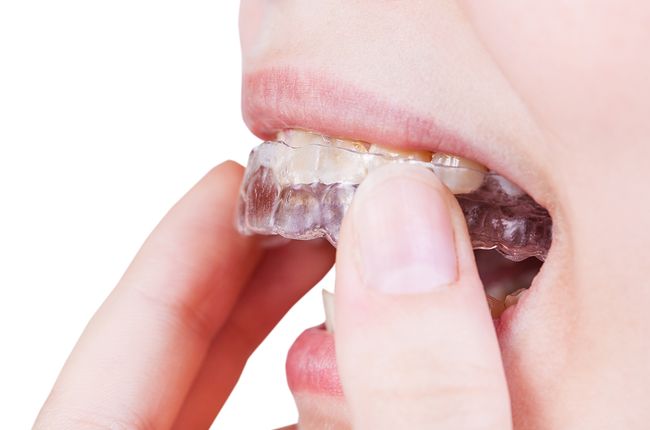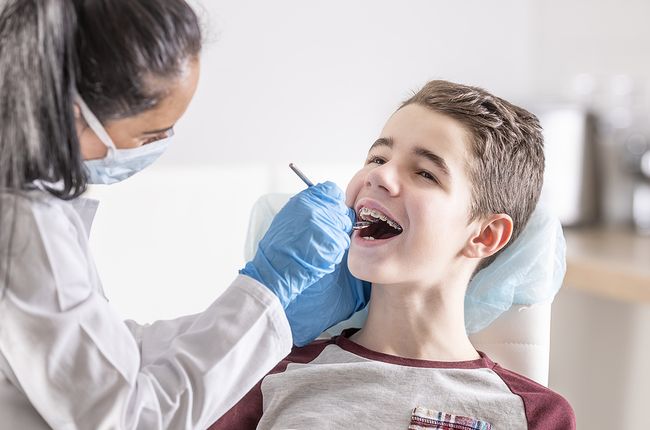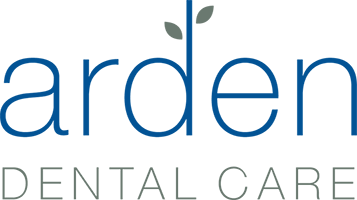Sedation Dentistry in Fair Oaks, CA
Sedation dentistry, a technique extensively employed in Fair Oaks, CA, is a remarkable advancement that has revolutionized the field of dental care. This specialized practice involves the use of medication to help patients relax during various dental procedures. By administering sedatives such as nitrous oxide or oral medications, skilled dentists aim to alleviate anxiety and fear commonly associated with visiting the dentist's office. The mild to moderate sedation achieved through this method ensures patient comfort throughout their dental treatment while enabling dentists to perform complex procedures without causing distress or discomfort. Sedation dentistry not only benefits individuals who suffer from dental phobia but also proves valuable for those undergoing lengthy procedures or individuals with sensitive gag reflexes. With its profound ability to create a calm and stress-free environment, sedation dentistry in Fair Oaks offers patients an opportunity for painless and anxiety-free visits, ultimately enhancing overall oral health and well-being.
In short, Fair Oaks residents who suffer from dental phobia no longer need to face unnecessary stress when seeking oral health care thanks to advancements in modern dentistry, such as sedation dentistry techniques! So, if you've been putting off going for that long overdue check-up, don't delay any further - make an appointment with our dentist in Fair Oaks, CA. Call us to learn more.
Types of Sedation Used in Dentistry
- Nitrous Oxide: Also known as laughing gas, nitrous oxide is a common form of sedation used in dentistry. It is administered through a mask placed over the patient's nose, inducing a relaxed and euphoric state.
- Oral Sedation: This involves taking an oral medication prescribed by the dentist before the dental procedure. The medication helps to calm anxiety and make the patient feel drowsy during the treatment.
- IV Sedation:Intravenous (IV) sedation involves administering medications directly into the bloodstream via an IV line. This method allows for precise control over the level of sedation throughout the procedure.
- General Anesthesia: Reserved for complex or invasive procedures, general anesthesia induces a deep sleep-like state where patients are completely unconscious and have no memory of the procedure.
- Local Anesthesia:While not technically a form of sedation, local anesthesia is commonly used alongside other forms to numb specific areas of your mouth during dental procedures, ensuring you don't feel any pain or discomfort.
- Deep Sedation/Conscious Sedation:This type of sedation puts patients in a deeper level of relaxation than mild forms like nitrous oxide but still keeps them conscious enough to respond to instructions from their dentist.
It's important to note that not all types may be suitable for every individual or every dental procedure. Your best dentist will assess your medical history and discuss which option would be best for you based on your specific needs.
Benefits of Sedation Dentistry
- Reduced Anxiety and Fear:One of the primary benefits of sedation dentistry is that it helps reduce anxiety and fear associated with dental procedures. Many people experience dental phobia, which can make it difficult for them to go through even routine check-ups. With sedation dentistry, patients can feel more relaxed and comfortable during their dental visits.
- Increased Comfort: Dental procedures can sometimes be uncomfortable or even painful. Sedation dentistry allows patients to experience increased comfort throughout their treatment by numbing any potential pain or discomfort.
- Time Efficient: For individuals who require extensive dental work, sedation dentistry can save time by allowing multiple procedures to be done in a single visit. This reduces the need for multiple appointments spread out over weeks or months.
- Improved Treatment Outcomes:When patients are relaxed under sedation, it becomes easier for the dentist to perform complex treatments effectively and efficiently. This leads to improved treatment outcomes and better overall oral health.
- Suitable for Various Procedures:Sedation dentistry can be used for a wide range of dental procedures, from simple cleanings to invasive surgeries such as tooth extractions or root canal therapy.
- Memory Loss: Some forms of sedation may cause temporary memory loss during the procedure, which can help patients forget any negative experiences they may have had at the dentist in the past.
- Ease Pediatric Dental Visits:Sedation dentistry is also beneficial for children who may have difficulty sitting still or cooperating during dental treatments.
In short, sedation dentistry offers numerous benefits that make going to the dentist a more pleasant experience for many individuals. From reducing anxiety and fear to improving treatment outcomes, this approach provides an effective solution for those who struggle with dental visits.
Who Can Benefit from Sedation Dentistry?
Sedation dentistry is not just for people with dental anxiety or phobia. In fact, there are many individuals who can benefit from this approach to dental care. Let's explore some of the groups that can benefit from sedation dentistry:
- Dental Phobia and Anxiety: People who experience extreme fear or anxiety when visiting the dentist can find relief through sedation dentistry. It helps them relax and feel more comfortable during their dental procedures.
- Gag Reflex Issues: Some individuals have a sensitive gag reflex, making it difficult for them to tolerate certain dental treatments. Sedation dentistry can help suppress the gag reflex, allowing for smoother and more comfortable treatment.
- Complex Dental Procedures:For patients undergoing lengthy or complex dental procedures such as multiple extractions or implant placements, sedation dentistry provides a way to stay calm and relaxed throughout the process.
- Special Needs Patients: Individuals with special needs may require extra support during dental visits due to sensory sensitivities or difficulty sitting still in the dental chair. Sedation can make these appointments easier for both the patient and dentist.
- Time-Conscious Individuals:Sedation dentistry enables multiple treatments to be completed in one visit by helping patients relax and remain still for an extended period of time.
- Those with TMJ Disorders:Patients suffering from temporomandibular joint (TMJ) disorders often experience discomfort during routine dental exams or procedures due to jaw pain or limited opening capacity.
Sedation dentistry offers benefits not only to those with severe anxiety but also other groups of patients who may need additional support during their dental visits.
The Process of Sedation Dentistry
The process of sedation dentistry involves several steps to ensure the safety and comfort of the patient. Before undergoing any dental procedure, a thorough evaluation is conducted to determine if sedation is necessary or appropriate for the individual. This assessment takes into consideration factors such as medical history, anxiety levels, and the complexity of the treatment.
Once it is determined that sedation dentistry is needed, the dentist will discuss the options available with the patient. There are different types of sedatives used in dentistry, ranging from oral medications to intravenous (IV) anesthesia. The choice depends on various factors, including the patient's level of anxiety and medical considerations.
On the day of the appointment, patients receiving IV sedation will have an anesthesiologist or nurse administer medication through a needle inserted into a vein. This allows for precise control over dosage and ensures optimal comfort throughout the procedure. During treatment, patients are closely monitored by trained professionals who keep track of vital signs such as blood pressure and heart rate. This continuous monitoring ensures that any potential complications can be addressed immediately.
After completion of dental treatment under sedation, patients may experience some grogginess or drowsiness due to residual effects from medication. It's important to have someone accompany them home following their appointment.
The process of sedation dentistry involves careful evaluation and selection of appropriate sedatives based on individual needs and medical considerations. Monitoring during treatment helps ensure patient safety while achieving optimal comfort throughout procedures.
Conclusion
Sedation dentistry offers a valuable solution for those who experience fear or anxiety when visiting the dentist. By using various types of sedation, patients can feel relaxed and comfortable throughout their dental procedures. Fair Oaks, CA, residents in need of dental care can benefit greatly from this approach.
With sedation dentistry, individuals who have dental phobias or anxieties no longer have to avoid necessary treatments. It allows them to receive the oral care they need without experiencing unnecessary stress or discomfort.
By choosing a qualified dentist in Fair Oaks, CA, who specializes in sedation dentistry, patients can rest assured that they are in good hands. These professionals understand the unique needs and concerns of anxious patients and will take every step necessary to ensure their comfort during treatment.
If you are someone who has been putting off dental visits due to fear or anxiety, consider exploring the option of sedation dentistry. With its many benefits and wide range of applications, it may be just what you need to regain your oral health with peace of mind.
So why settle for less when it comes to your smile? Visit Arden Dental Center for the best dental care in Fair Oaks, CA. Your teeth deserve nothing but excellence! Call us at (916) 481-2001 or visit our dental office located at 1832 Avondale Ave Ste 1, Sacramento, CA 95825

Teeth Whitening in Fair Oaks, CA

Cosmetic Dentistry in Fair Oaks, CA

Invisalign in Fair Oaks, CA

Best Dentist in Fair Oaks, CA

Crowns Bridges in Fair Oaks, CA

Dental Fillings in Fair Oaks, CA

Fair Oaks, CA Dental Offices

Oral Conscious Sedation in Fair Oaks, CA

Routine Dental Care in Fair Oaks, CA

Porcelain Veneers in Fair Oaks, CA

Full Mouth Reconstruction in Fair Oaks, CA

Dental Care in Fair Oaks, CA
Office Hours
MON 9:00 am - 6:00 pm
TUE - FRI 7:30 am - 4:30 pm
SAT - SUN Closed
